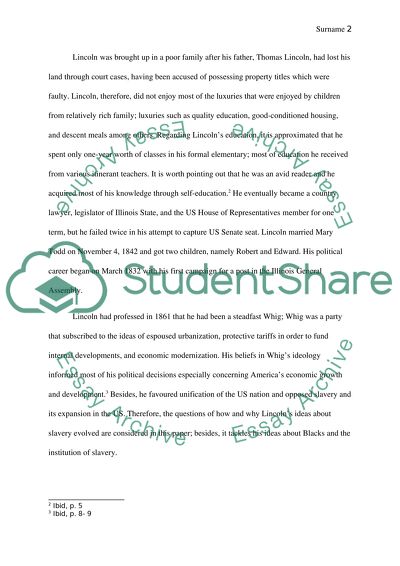Cite this document
(“Abraham Lincoln and Slavery Essay Example | Topics and Well Written Essays - 1750 words”, n.d.)
Retrieved from https://studentshare.org/history/1438362-how-and-why-did-lincolnyies-ideas-about-slavery
Retrieved from https://studentshare.org/history/1438362-how-and-why-did-lincolnyies-ideas-about-slavery
(Abraham Lincoln and Slavery Essay Example | Topics and Well Written Essays - 1750 Words)
https://studentshare.org/history/1438362-how-and-why-did-lincolnyies-ideas-about-slavery.
https://studentshare.org/history/1438362-how-and-why-did-lincolnyies-ideas-about-slavery.
“Abraham Lincoln and Slavery Essay Example | Topics and Well Written Essays - 1750 Words”, n.d. https://studentshare.org/history/1438362-how-and-why-did-lincolnyies-ideas-about-slavery.


